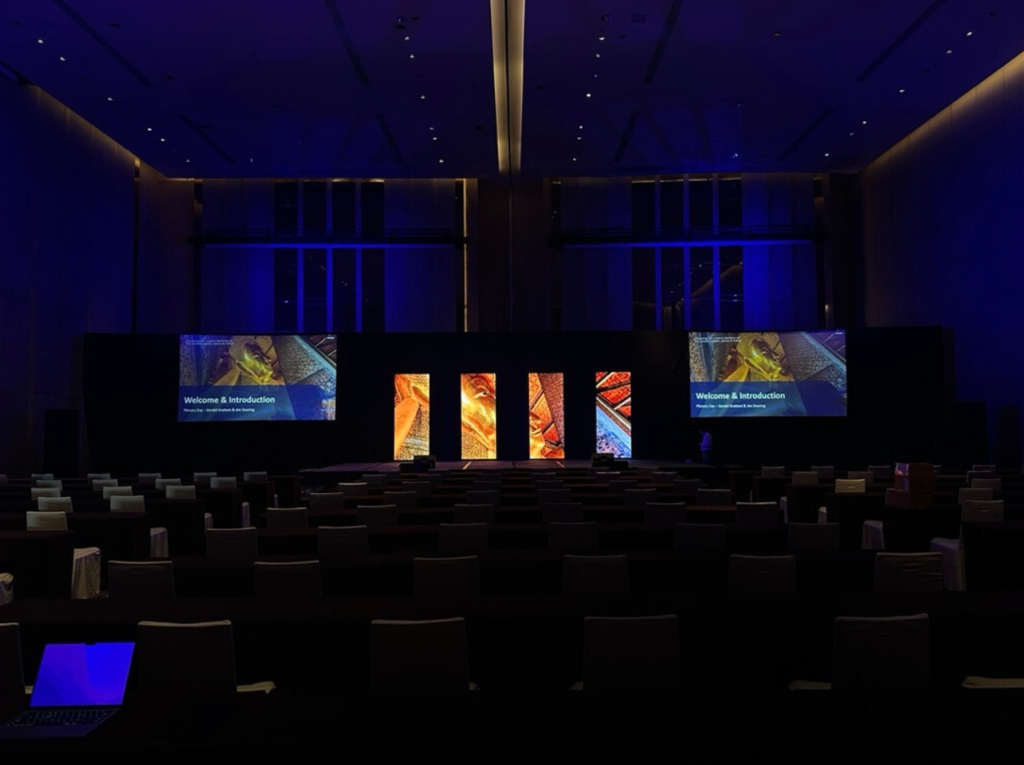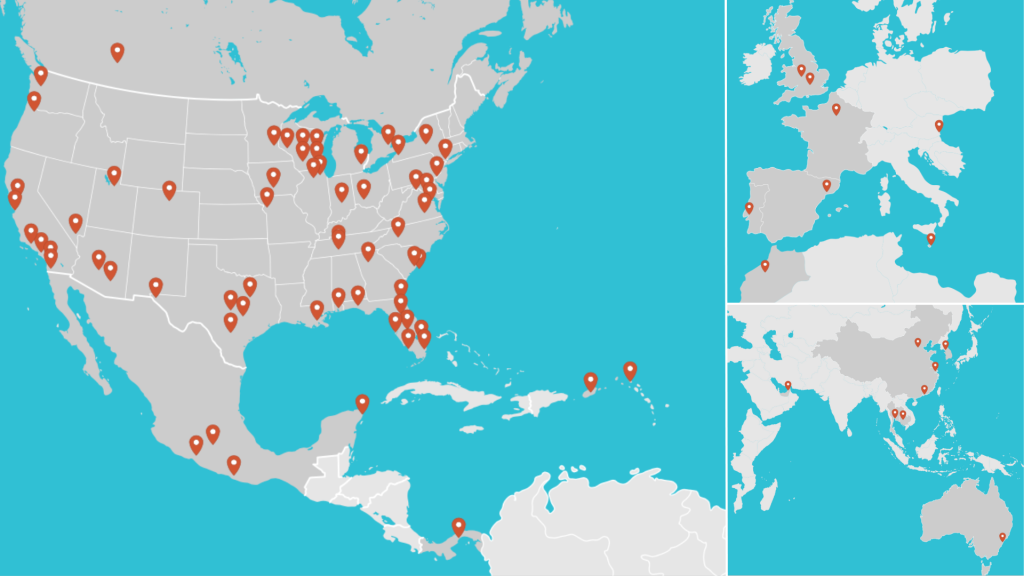Oh, the places we go! While Tri-Marq may have our home bases in Milwaukee, Madison, and Chicago, our clients take us far and wide to explore the magic of production all over the world. In the coming weeks, keep up with our global event production mini-series here on our blog and on social media as we focus on our production around the world, hear stories from our event team, see some of the places we’ve been, and maybe even pick up some tips of the trade along the way! Today’s article will highlight some best practices from our event experts here at Tri-Marq.
In the planning stage of every event, also known as pre-production, (pre-pro) there are many things experienced producers consider in order to execute a smoothly-ran international event. Between sourcing the equipment, working with vendors, venue-specific event format, and other international complications like currency exchange, our event producers keep busy in the months leading up to an international event. Here are some of the things we consider in the pre-pro process:
How to find local equipment vendors:
Most event planners use a local Destination Management Company (DMC) as their resource for all their event needs. Many of these DMCs have a list of preferred audiovisual (AV) equipment vendors that they will recommend for their clients.
As some of the most common event venues, the vast majority of hotels worldwide have an equipment partner they work with to support the AV needs in their meeting rooms. In some countries, these partners can be actual production companies that do high-end meeting productions. Additionally, hotels can also recommend other production companies that have worked well in their meeting spaces.
If all else fails, Google & LinkedIn are great resources when it comes to finding AV providers. You can tell a lot about the quality of equipment and level of production a company can handle by simply browsing their website and social media pages.
This approach also works if you need a photographer or videographer in another country! There are also folks like Crews Control that can connect you with local talent.
*Work with a professional Show Production team. Has contracts with many vendors.
How to find the right equipment?
Asking for the right equipment can be difficult as you deal with potential language barriers and specific equipment not being available in some markets. Tri-Marq has created a template that has been successfully used in multiple countries and languages that helps to cut through those barriers to get the right equipment on a show.
Aside from asking for the right gear, make sure that your vendor supplies you with a list of equipment with brand names & model numbers. That will help you to make sure you’re getting the right equipment and good quality. We expect good quality equipment from all vendors. It saves time and helps with the bottom line.
When to start working with vendors?
As soon as possible! The more time you have to plan your set, the better your event will look, and the more likely it will stay on budget.
We usually have an initial conversation with the venue 6 months prior to the event discussing room dimensions and property logistics. Then anywhere from 3 – 4 months prior to the event, we start working with a local AV vendor to design the room and build a budget.
When to start planning?
When working an international event, always assume you’ll need more planning time than when working nationally. Being based in the United States puts you physically behind almost everyone else in the world, so when you send that email at 10 am, it could be 7 pm for the recipient and they won’t have a chance to respond until the next day. Because other countries typically don’t have such a work-centric culture, it is not unusual for it to take days to receive a response to an email. It’s also not uncommon to get an “out of office, I’m on vacation for 2 weeks” response during summer months in Europe. Depending on the country, they may not work Monday – Friday, but Sunday – Thursday, so you have to factor that in as well. As a result of these cultural differences, the communication surrounding event planning can be delayed. We always try to get ahead in the planning process whenever possible to avoid any stalls that might come further down the road.
International event planning can also be more time-consuming as oftentimes, you aren’t able to conduct the same level or at all the types of site surveys that we would do in the US. To avoid any mishaps or negative possibilities that can come with forgoing a site survey, Tri-Marq has developed a robust process that allows for us to gain a lot of the same information using local contacts and other publicly available information to help answer as many of those questions as possible.
Which currency to use?
As a rule of thumb, always use the currency that your client is building their budget with. This process helps keep budget numbers clear in their head as they track all their expenses. While using foreign currency in communication does mean time spent converting costs from the local currency, Google’s currency converter is a quick way to give you a relatively accurate and quick cost conversion.







